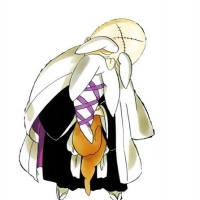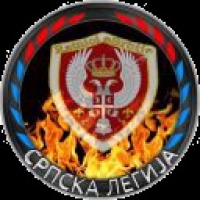![]() Pubblicato in Georgia - Intrattenimento - 17 Jun 2016 03:02 - 44
Pubblicato in Georgia - Intrattenimento - 17 Jun 2016 03:02 - 44
Data Tutashkhia (Georgian: დათა თუთაშხია) is a novel written by Chabua Amirejibi in 1975. It was translated to English
by Antonina W. Bouis in 1985. This is one of the most lar readable novels in Georgia and former Soviet countries.
The novel is a story of a Georgian outlaw of the Imperial Russian period, a very lar theme in Georgian literature, and
combines thrilling escapades with Dostoevskian dealings with the fate of an individual and national soul. The story is narrated
by a Russian gendarme, Count Szeged, who frequently pes the story-telling on to other characters. The novel follows the life
of outlaw Data Tutashkhia, who spends years eluding capture by the Tsarist police. They are led by Data's cousin, his detached
and imperturbable double, Mushni Zarandia. The book, and the feature film based on it, turned Data Tutaskhia into an iconic
hero, widely lar in Georgia.

The novel is divided into 4 parts chronicling its hero's, Data Tutashkhia's, moral evolution, interestingly enough, always
narrated from the perspective of a multitude of characters from Tutashkhia's past. He is a man who from birth, can not
stand injustice and wrongdoing. At the very beginning of the novel, we learn that he was convicted of an accidental killing
that even the victim absolved him of! This then began his life as a fugitive, constantly running from police desperate to
catch him. Throughout the novel, He goes from place to place, sees evil and struggles with how to overcome it. In the
first part of the novel, Tutashkhia attempts to help those wronged with little result, as either the individual
wronged (strangely enough) continues to allow him/herself to be wronged (as in the case of the loser at cards
continuing to allow himself to be cheated by card sharks); or the injured and insulted, once rescued by Data , start,
themselves, to injure and insult (as was the case with the married pair whom Tutashkhia isted to purchase a cow).
An excellent, memorable tale in this section of the novel was that of the hospital patients, whom he likened to the
cannibal rats bred by one of the residents.In the second part of the novel Data Tutashkhia, saddened by his previous experiences,
decides not to intervene at all in
societal issues unless absolutely certain that his actions would bring good. His new stance had the result of people
forgetting all of his past good deeds, and turning on him for his 'indifference'.In the third part of the novel, Tutashkhia, who has by this
point lost his way, attempts to mingle in society in order to determine
for himself a meaning and way forward in life. He joins the company of a lawyer and a mysterious woman and their little
group engages in various philosophical debates over drinks (which it seems was/is a national pastime in Georgia!).
This portion of the story was both interesting, in terms of the philosophical debates, and suspenseful The segment's climax,
the dinner at the lawyer's home (with its 'mystery' guest), was particularly suspenseful and well-written.In the next section of the novel,
Data Tutashkhia decides that evil can only be overcome by force. Here, we learn more
about his cousin, who by this time, is one of the Russian imperial gendarme's 'best and brightest'.
Completely -ahem- 'devoted' to his job and - ahem- ahem- 'unbiased', he zealously oversees a program to rid the region of 'dangerous' outlaws
such as his cousin. It is in this section that we truly gain an understanding of which of the brothers
really is the danger to society and the regime.In the final part of the book, Tutashkhia finally decides for himself, based on all of his
past experiences, that the best
way to rid the world of evil is to do good. This section of the novel features a gripping ending, as well as the final confrontation
between Data and his family.

by Antonina W. Bouis in 1985. This is one of the most lar readable novels in Georgia and former Soviet countries.

The novel is a story of a Georgian outlaw of the Imperial Russian period, a very lar theme in Georgian literature, and
combines thrilling escapades with Dostoevskian dealings with the fate of an individual and national soul. The story is narrated
by a Russian gendarme, Count Szeged, who frequently pes the story-telling on to other characters. The novel follows the life
of outlaw Data Tutashkhia, who spends years eluding capture by the Tsarist police. They are led by Data's cousin, his detached
and imperturbable double, Mushni Zarandia. The book, and the feature film based on it, turned Data Tutaskhia into an iconic
hero, widely lar in Georgia.

The novel is divided into 4 parts chronicling its hero's, Data Tutashkhia's, moral evolution, interestingly enough, always
narrated from the perspective of a multitude of characters from Tutashkhia's past. He is a man who from birth, can not
stand injustice and wrongdoing. At the very beginning of the novel, we learn that he was convicted of an accidental killing
that even the victim absolved him of! This then began his life as a fugitive, constantly running from police desperate to
catch him. Throughout the novel, He goes from place to place, sees evil and struggles with how to overcome it. In the
first part of the novel, Tutashkhia attempts to help those wronged with little result, as either the individual
wronged (strangely enough) continues to allow him/herself to be wronged (as in the case of the loser at cards
continuing to allow himself to be cheated by card sharks); or the injured and insulted, once rescued by Data , start,
themselves, to injure and insult (as was the case with the married pair whom Tutashkhia isted to purchase a cow).
An excellent, memorable tale in this section of the novel was that of the hospital patients, whom he likened to the
cannibal rats bred by one of the residents.In the second part of the novel Data Tutashkhia, saddened by his previous experiences,
decides not to intervene at all in
societal issues unless absolutely certain that his actions would bring good. His new stance had the result of people
forgetting all of his past good deeds, and turning on him for his 'indifference'.In the third part of the novel, Tutashkhia, who has by this
point lost his way, attempts to mingle in society in order to determine
for himself a meaning and way forward in life. He joins the company of a lawyer and a mysterious woman and their little
group engages in various philosophical debates over drinks (which it seems was/is a national pastime in Georgia!).
This portion of the story was both interesting, in terms of the philosophical debates, and suspenseful The segment's climax,
the dinner at the lawyer's home (with its 'mystery' guest), was particularly suspenseful and well-written.In the next section of the novel,
Data Tutashkhia decides that evil can only be overcome by force. Here, we learn more
about his cousin, who by this time, is one of the Russian imperial gendarme's 'best and brightest'.
Completely -ahem- 'devoted' to his job and - ahem- ahem- 'unbiased', he zealously oversees a program to rid the region of 'dangerous' outlaws
such as his cousin. It is in this section that we truly gain an understanding of which of the brothers
really is the danger to society and the regime.In the final part of the book, Tutashkhia finally decides for himself, based on all of his
past experiences, that the best
way to rid the world of evil is to do good. This section of the novel features a gripping ending, as well as the final confrontation
between Data and his family.

Supporta
The RastamanCommenti (44)

s45 +vote

o7

voted

S+V

vsc

s+v

Uehsh

forro

VS

My sub was no:79, vote:37
sub4sub http://www.erevollution.com/en/article/964
Please answer with your sub number, thanks 

v s

This is great 

v s

v+s

v+s+c

v s c 

aaa

data )))))

asdasd


























